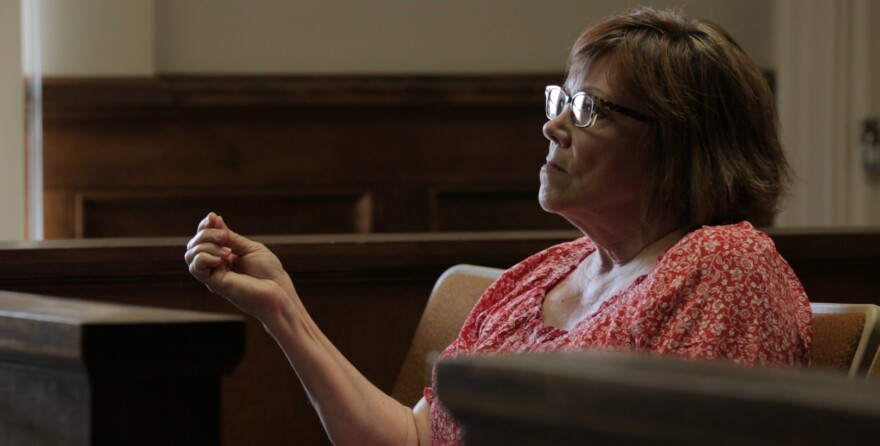This story is part of True/False Conversations, a series of in-depth interviews with the filmmakers of this year's True/False Film Fest.
Lindy Lou, Juror Number 2 follows one woman as she struggles to come to terms with the decision she and her fellow jurors made twenty years ago sentencing Bobby Wilcher to death. When Wilcher was executed in 2006, Lindy had been his only visitor.
20 years later Lindy, along with director Florent Vassault, takes a road trip to track down her fellow jurors in an attempt to grapple with her guilt. Reporter Claire Banderas talked with Vassault about his journey with Lindy.
Banderas: How did a French filmmaker end up in Mississippi following this story?
Vassault: This only my second non-fiction film that I really directed. My first one was called Honk It was already a film that dealt the death penalty, it actually was a take on the death penalty in the US in 2010.That's, while we were doing this documentary that I met Lindy Lou. I'm very cautious not making a film that would be an activist film. I don't think that's what I've done. I don't think it's a film about the death penalty. It's more a film about guilt and responsibility.
Banderas: It seemed unique to me as I was watching the film, the way information was revealed was very subtle. Was that intentional?
Vassault: I'm glad you mentioned that, because that's been a long process. That was my idea at first. I wanted to have all the elements be told little by little and so that we only by the half of the film we have all the elements. I trust the story and I trust the rhythm of the film, too. I know it's slow, it's talkative, it's reflexive but I think in a way it's stronger than trying to put all the information and tell the whole story and every single details and every anecdote. The idea was really to have additional layers, you have one layer and second one and a third one and it gets deeper and deeper.
Banderas: Some of the shots that you would do were setting the scene of Southern America. So you would have shots of confederate flags or her family shooting and learning how to shoot guns, was that intentional for you to set the scene?
Vassault: Here I'm cautious because, I know especially when you are European and you don't want to fall in the cliches of a European filmmaker coming to America, talking about the death penalty and giving lessons. I'm cautious not to do that. It was really important for me to give a sense of where Lindy comes from. She's she comes from the deep, deep south. Very conservative and she made this incredible path and started going the other way because she's be confronted with the death penalty and that's made her ideas evolve.



